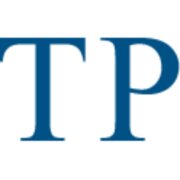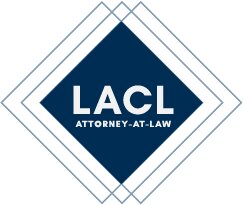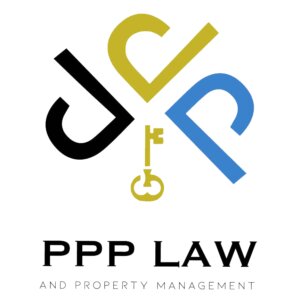Best ESG Advisory & Compliance Lawyers in Huai Khwang
Share your needs with us, get contacted by law firms.
Free. Takes 2 min.
List of the best lawyers in Huai Khwang, Thailand
About ESG Advisory & Compliance Law in Huai Khwang, Thailand
ESG (Environmental, Social, and Governance) Advisory & Compliance law has become increasingly relevant in Huai Khwang, a dynamic district within Bangkok, Thailand. This legal field focuses on helping companies and organizations operate responsibly by adhering to standards that consider environmental impact, social responsibility, and effective governance. In recent years, both the Thai government and international investors have placed greater emphasis on ESG compliance to enhance sustainability, manage risks, and promote ethical business practices. In Huai Khwang, with its growing mix of businesses, understanding and complying with ESG regulations can be crucial for corporate reputation and long-term viability.
Why You May Need a Lawyer
There are several common scenarios where seeking legal help in ESG Advisory & Compliance can be essential:
- Businesses planning to launch operations in Huai Khwang often need guidance on meeting local and international ESG standards.
- Companies facing regulatory audits or investigations related to environmental, social, or governance concerns may require legal representation and risk assessment.
- Organizations looking to access international funding or investment often need to prove compliance with ESG criteria, which lawyers can help document and certify.
- Corporations aiming to draft or update internal policies for sustainability and ethical practices often benefit from legal expertise in ensuring these policies comply with Thai laws.
- Firms handling complaints or disputes involving environmental impact, labor practices, or board governance may require legal strategies to mitigate risks.
Local Laws Overview
Several local and national regulations affect ESG Advisory & Compliance in Huai Khwang, Thailand:
- Thailand’s Environmental Act regulates pollution, waste management, and environmental impact assessments. Businesses must acquire proper permits and adhere to waste disposal rules.
- Labor Protection Act B.E. 2541 (1998) sets standards for working conditions, employment contracts, minimum wage, and social welfare, all vital aspects of the “social” component of ESG.
- Securities and Exchange Commission (SEC) Thailand mandates ESG reporting and transparency for listed companies. Publicly traded entities must disclose ESG risks and strategies in their annual reports.
- Anti-Corruption and Good Governance Laws such as the Organic Act on Anti-Corruption, govern the "G" pillar of ESG, demanding clear corporate governance structures and anti-bribery measures.
Local authorities in Huai Khwang also enforce stricter urban management policies as part of Bangkok’s wider sustainability initiatives, impacting how businesses must operate within the district.
Frequently Asked Questions
What does ESG mean for businesses in Huai Khwang?
ESG refers to Environmental, Social, and Governance principles. For businesses, this means considering environmental protection, social responsibility (such as fair labor practices), and strong corporate governance in all operations.
Is ESG compliance required by law in Thailand?
Some aspects of ESG are mandated by Thai law, especially for listed companies. However, many ESG practices are best-practice standards that are increasingly expected by investors and regulators.
How can a lawyer assist with ESG compliance?
A lawyer can interpret complex ESG regulations, ensure your business meets legal requirements, draft compliant company policies, and represent you during audits or investigations.
Are there specific ESG reporting requirements in Thailand?
Yes, listed companies are required to disclose ESG-related information in their annual reports, especially concerning environmental and social risks and governance practices.
What penalties exist for non-compliance with ESG regulations?
Penalties can range from fines and operational restrictions to damage of business reputation. In severe cases, non-compliance can lead to criminal charges or loss of licenses.
Who enforces ESG regulations in Huai Khwang?
National bodies such as the Ministry of Natural Resources and Environment, the Department of Labor Protection and Welfare, and the Securities and Exchange Commission supervise ESG compliance, with support from local authorities.
What sectors are most affected by ESG regulations in Huai Khwang?
Industries like construction, manufacturing, finance, and hospitality are closely monitored due to their environmental and social impacts, but all companies are increasingly expected to comply with ESG standards.
Can small and mid-sized businesses benefit from ESG advisory services?
Yes, adopting ESG best practices can improve risk management, brand reputation, access to funding, and long-term sustainability for businesses of all sizes.
What steps should a business take to become ESG compliant?
Begin by conducting a compliance audit, consulting a legal expert, and implementing robust policies and training. Regular monitoring and transparent reporting are also essential.
How often do ESG laws and standards change?
Laws and standards are updated regularly to keep up with international trends and local needs. Ongoing legal advice ensures your compliance practices remain current.
Additional Resources
- Ministry of Natural Resources and Environment (MNRE) Thailand - Oversees environmental policies and compliance.
- Thai Securities and Exchange Commission (SEC) - Regulates disclosure and transparency for ESG among publicly listed companies.
- Thai Chamber of Commerce - Provides ESG guidance, training, and networking opportunities for businesses.
- Department of Labor Protection and Welfare - Advises on labor standards and social compliance.
- Thailand Board of Investment (BOI) - Offers resources for investors interested in sustainable business practices.
Next Steps
If you believe your business or organization requires ESG Advisory & Compliance assistance in Huai Khwang, consider the following steps:
1) Assess your current ESG practices and identify any gaps or potential risks.
2) Consult with a qualified lawyer familiar with ESG regulations in Thailand and specifically the Huai Khwang area.
3) Prepare necessary documentation and gather information relevant to environmental, labor, and governance processes within your company.
4) Implement or update internal policies and conduct training for management and employees to ensure ongoing compliance.
5) Stay informed on evolving ESG requirements by subscribing to updates from government and professional organizations, and schedule regular reviews with your legal advisor.
Proactive legal guidance helps you avoid penalties, attract investors, and maintain long-term success in Huai Khwang’s competitive and evolving business environment.
Lawzana helps you find the best lawyers and law firms in Huai Khwang through a curated and pre-screened list of qualified legal professionals. Our platform offers rankings and detailed profiles of attorneys and law firms, allowing you to compare based on practice areas, including ESG Advisory & Compliance, experience, and client feedback.
Each profile includes a description of the firm's areas of practice, client reviews, team members and partners, year of establishment, spoken languages, office locations, contact information, social media presence, and any published articles or resources. Most firms on our platform speak English and are experienced in both local and international legal matters.
Get a quote from top-rated law firms in Huai Khwang, Thailand — quickly, securely, and without unnecessary hassle.
Disclaimer:
The information provided on this page is for general informational purposes only and does not constitute legal advice. While we strive to ensure the accuracy and relevance of the content, legal information may change over time, and interpretations of the law can vary. You should always consult with a qualified legal professional for advice specific to your situation.
We disclaim all liability for actions taken or not taken based on the content of this page. If you believe any information is incorrect or outdated, please contact us, and we will review and update it where appropriate.













